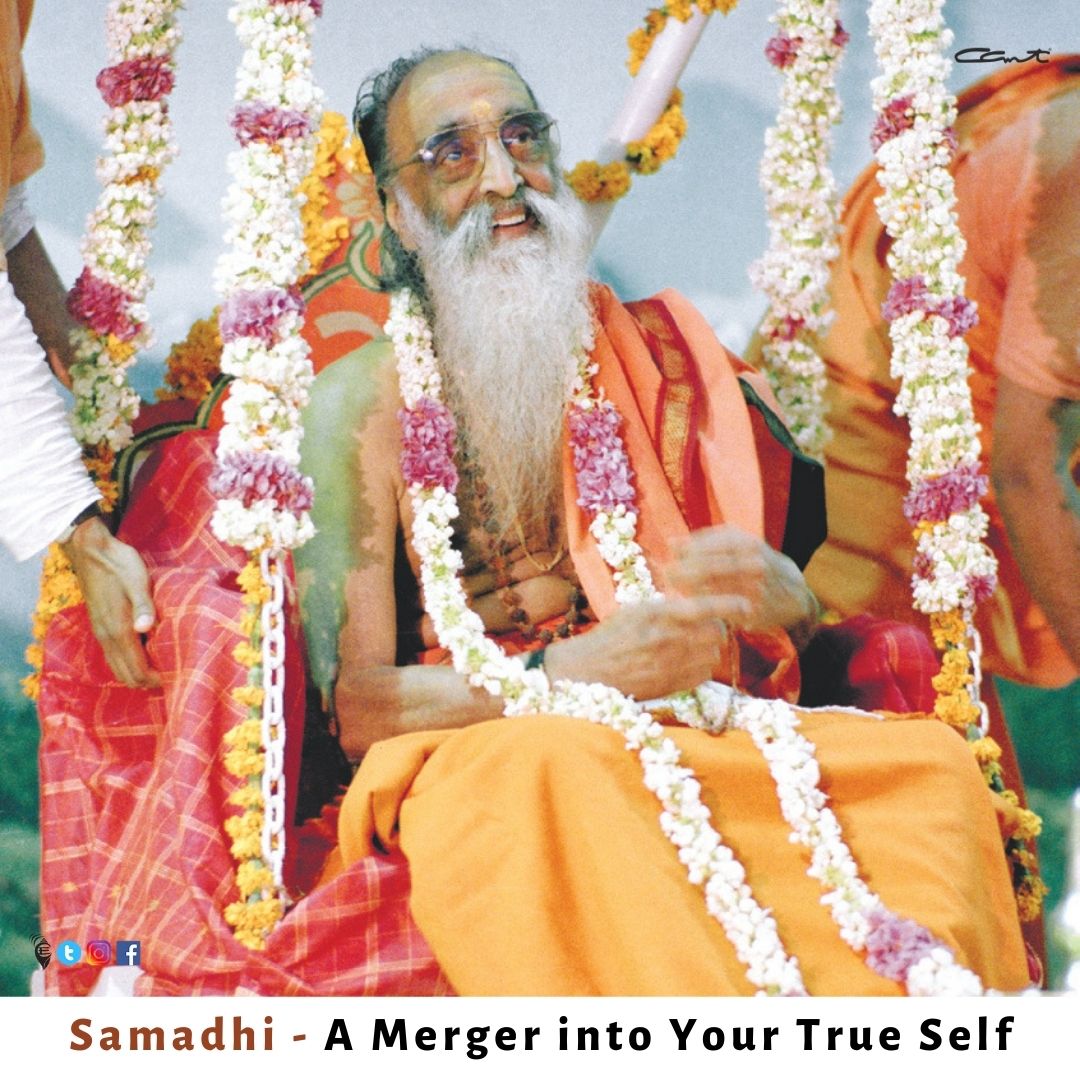A Study of the Bhagavadgita - Chapter 6.2. Swami Krishnananda.
-----------------------------------------------------------------------------------
Friday, May 07, 2021. 08:12.PM.
Chapter 6: Sankhya – The Wisdom of Cosmic Existence - 2.
-----------------------------------------------------------------------------------
How would you, then, make yourself fit for the universal vision if you are rejoicing in the world of the sense organs?
Another verse gives a little clue in this matter.
BG-CH-2, SLO-70.
"apuryamanam achala-pratishtham
samudram apah pravishanti yadvat
tadvat kama yam pravishanti sarve
sa shantim apnoti na kama-kami."
BG 2.70: Just as the ocean remains undisturbed by the incessant flow of waters from rivers merging into it, likewise the sage who is unmoved despite the flow of desirable objects all around him attains peace, and not the person who strives to satisfy desires.
A person filled with desires cannot have any vision of the Universal Spirit. If it could be possible, by way of intense austerity and restraint of sense organs, to withdraw the forces of the senses into your own self; if all the desires can merge into your universality as rivers merge in the ocean or as waves subside in the ocean; if the multifarious longings of the senses can melt down into the universal background of your own existence; if you are satisfied with what you are, and do not ask for what you do not have; if you do not go for things outside but are happy with your own self; if your loneliness is what you want and not the diversity of things outside – that is to say, if all your desires melt down in Pure Being, which is your essence – then the senses will not distract you in the way they do in ordinary life. You are basically universal in nature, and yet you perceive diversity in the world. There is contradiction between your daily perceptions and your spiritual longings.
So here is a clue given in this verse of the Bhagavadgita. If you are stable like the majestic ocean which is never disturbed by any kind of tumult on its surface; if you can stand mightily like an elephant before the howling jackals of the senses; if you can be satisfied with what you are and not merely with what you have; if these desires which are wrongly oriented on account of the pressure of the sense organs can revert back to your own self, then you will expand the dimension of your existence instead of looking like a finite individual. When so, desires enter into you and they do not proceed out in the direction of objects, and you attain peace: sa santim apnoti.
Peace cannot be had by possession of things. You cannot have peace of mind by contact with external objects or any kind of external relation. Peace is the outcome of unity of vision, integratedness of personality. The five koshas – Annamaya, Pranamaya, Manomaya, Vijnanamaya, Anandamaya – which are the finitising sheaths of your personality, should again melt down into the spirit from where they have arisen. Then you have peace. This is the greatest achievement that you can conceive. If this could be possible, you can be sure that you are established in the Absolute.
---------------------------------------------------------------------------------------------------------------------------
BG-CH-2, SLO-72.
"esha brahmi sthitih partha nainam prapya vimuhyati
sthitvasyam anta-kale ’pi brahma-nirvanam richchhati."
BG 2.72: O Parth, such is the state of an enlightened soul that having attained it, one is never again deluded. Being established in this consciousness even at the hour of death, one is liberated from the cycle of life and death and reaches the Supreme Abode of God.
---------------------------------------------------------------------------------------------------------------------------
esha brahmi sthitih (Gita 2.72): This is the Absolute state. This is the state of Brahman. Which is the state of Brahman? It is where desires trouble you not, where you want nothing except your own Self because of the fact you are cosmically connected to creation as a whole. If you can establish your consciousness in this state even for a few minutes, you should consider yourself as blessed.
To be continued ...
===================================================================================






Comments
Post a Comment